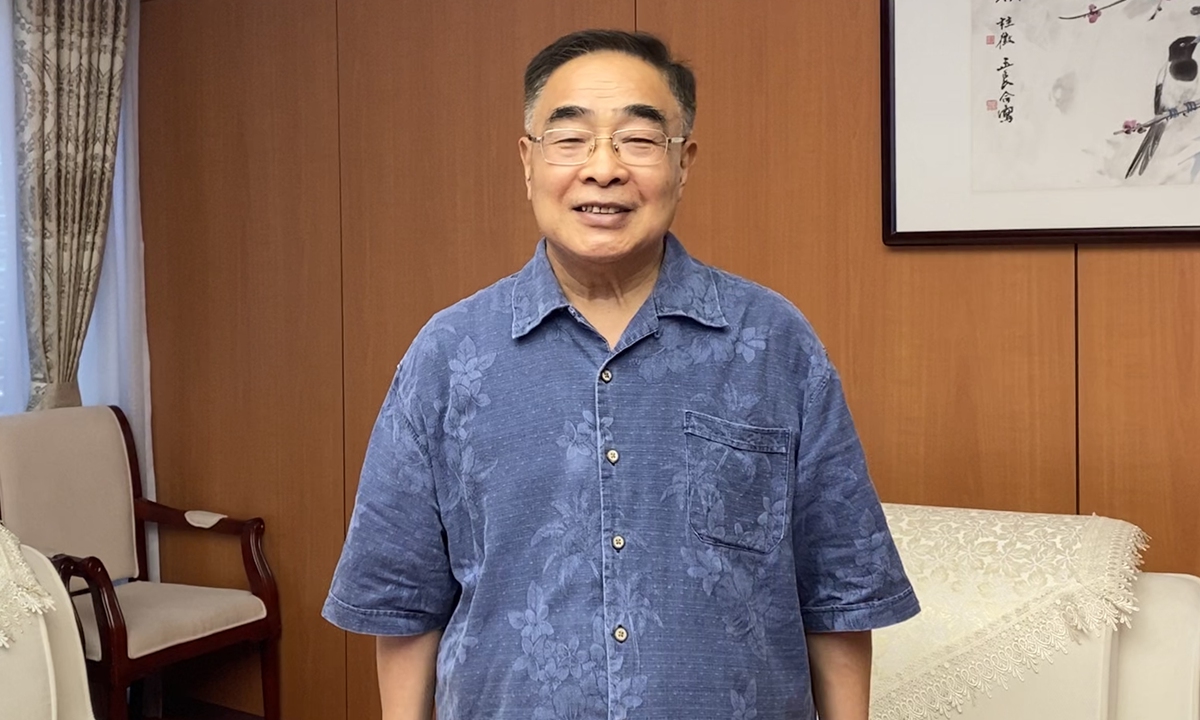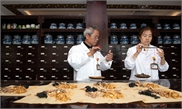
Zhang Boli, an academician with the Chinese Academy of Engineering and one of the top-level consultants in the fight against the COVID-19 outbreak in Central China's Hubei Province. Photo: Zhang Dan/GT
A top-level consultant in the fight against the COVID-19 outbreak in Central China's Hubei Province said globalizing Traditional Chinese Medicine (TCM) is not political, and refuted claims suggesting it was a form of "culture invasion," and that China had taken advantage of the pandemic to promote TCM.
Zhang Boli, an academician with the Chinese Academy of Engineering, told the Global Times that saving lives outmatches everything during the ongoing battle against COVID-19 and that promoting TCM was not politically motivated.
"We are unable to fill an individual decoction by holding his or her nose," Zhang said, adding that TCM's growing international appeal was never forced.
During China's fight against COVID-19, TCM has played a helping role in treating 92 percent of the COVID-19 cases nationwide, said a white paper released by the State Council Information Office on Sunday. In Hubei, the province hit hardest by the virus, more than 90 percent of the infected patients received TCM treatment that was proven effective.
Chinese experts and doctors provided clinical trial data on the efficacy and safety of Lianhua Qingwen capsules taken by COVID-19 patients, and found that the capsules can apparently relieve symptoms and increase recovery rates among patients with wild symptoms.
Taking part in more than 40 online discussions with foreign countries, regions, and organizations, Zhang noted how other countries expressed interest in TCM's effectiveness in curing COVID-19 patients.
"Our medical teams in Italy and Iraq took 100,000 and 120,000 boxes of Lianhua Qingwen capsules respectively with them. The medicine is registered in Canada, Mozambique, Indonesia, Brazil, and Romania. It has also achieved a temporary permission by Hungary for local coronavirus prevention and control," Zhang said at a TCM international development forum in Beijing on Sunday.
While some are afraid that western medicine makers may retreat from manufacturing pills in China due to the China-US trade war, Zhang refuted this and said he has yet to see any signs of foreign medicine makers' leaving.
"What I see is that they want to make more medicine in China to gain profit," he explained.
As a transnational drug company, AstraZeneca China - one of the forum organizers - sees the market demand for TCM, and hopes to participate and promote its globalization by cooperating with more Chinese medicine firms, Michael Lai, the General Manager of AstraZeneca China, told the Global Times.
In 2019, Chinese company Luye Pharma Group granted AstraZeneca exclusive rights to promote TCM Xuezhikang capsules on the Chinese mainland and Singapore, and signed an MOU with AstraZeneca to promote the capsules globally.
So far, TCM has spread to 183 countries and regions with more than 40 signing TCM-related agreements with China, said Yu Wenming, head of the State Administration of Traditional Chinese Medicine at Sunday's forum.
Under the Belt and Road Initiative (BRI), China will establish 30 TCM centers in participating countries by the end of the year, according to Secretary General of China Association of Chinese Medicine, Wang Guochen.



